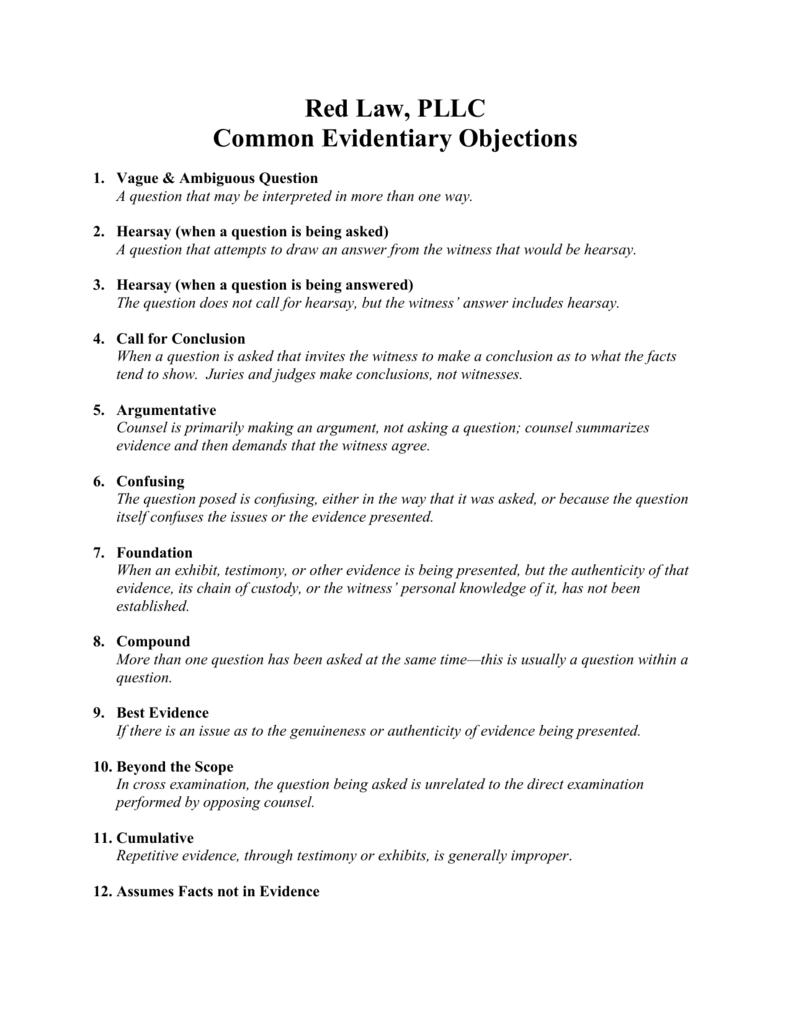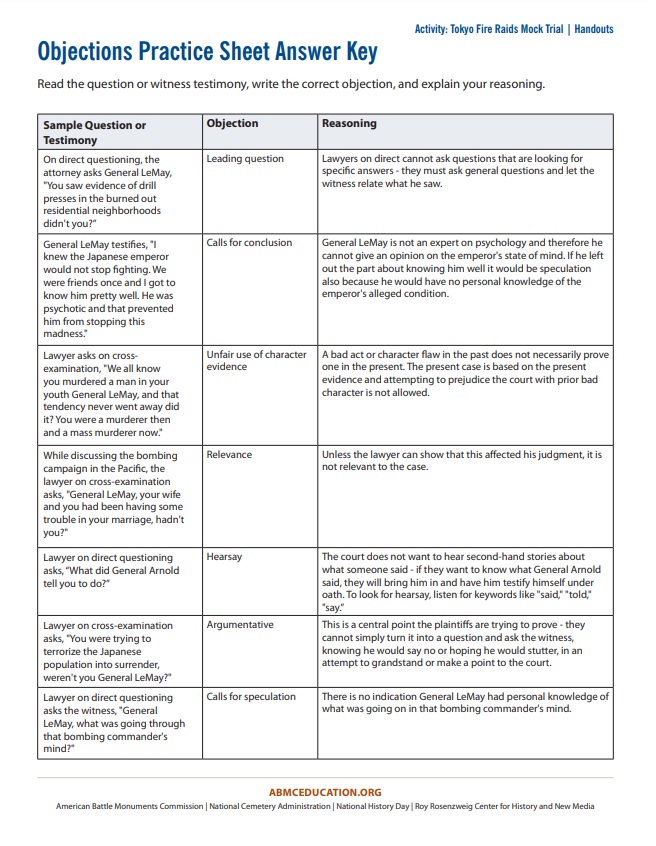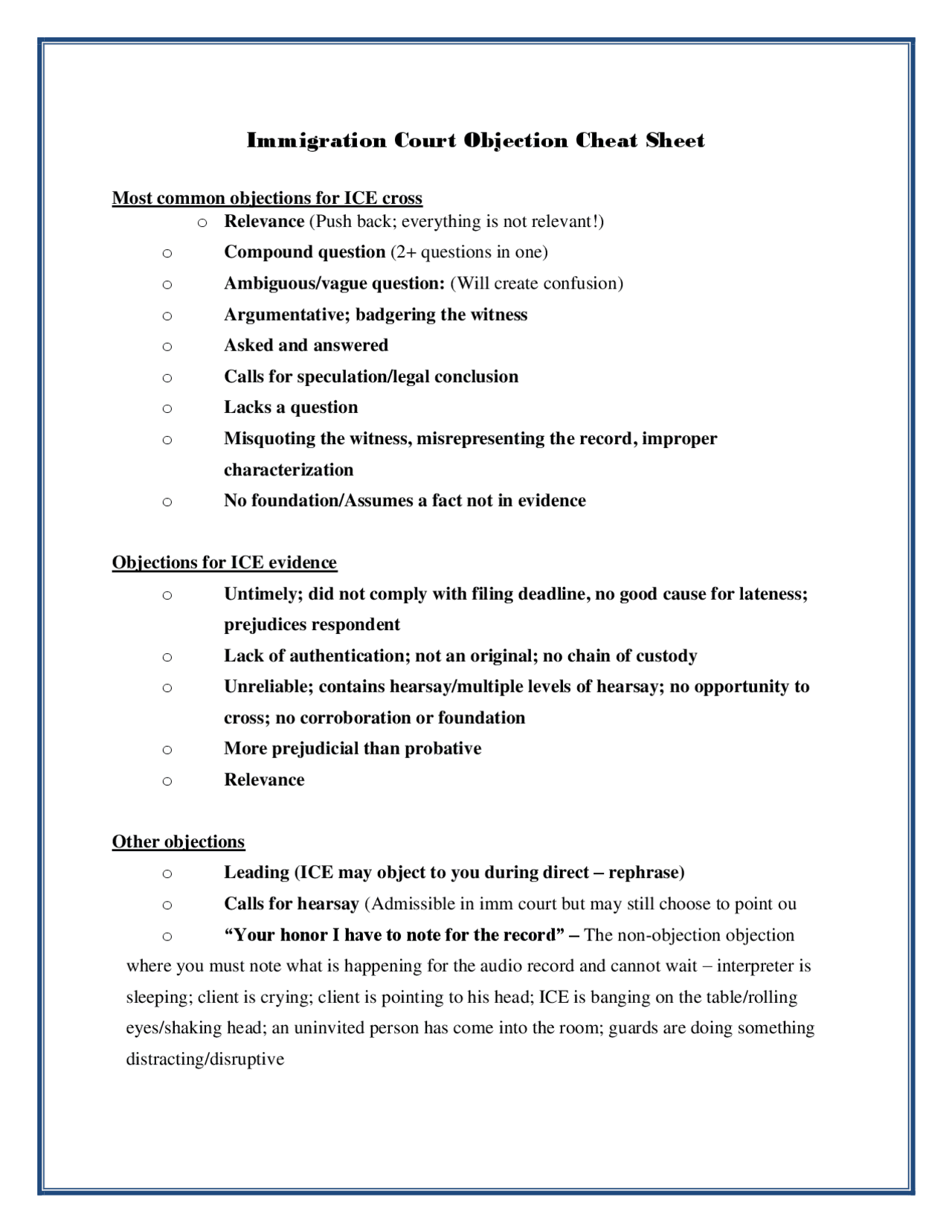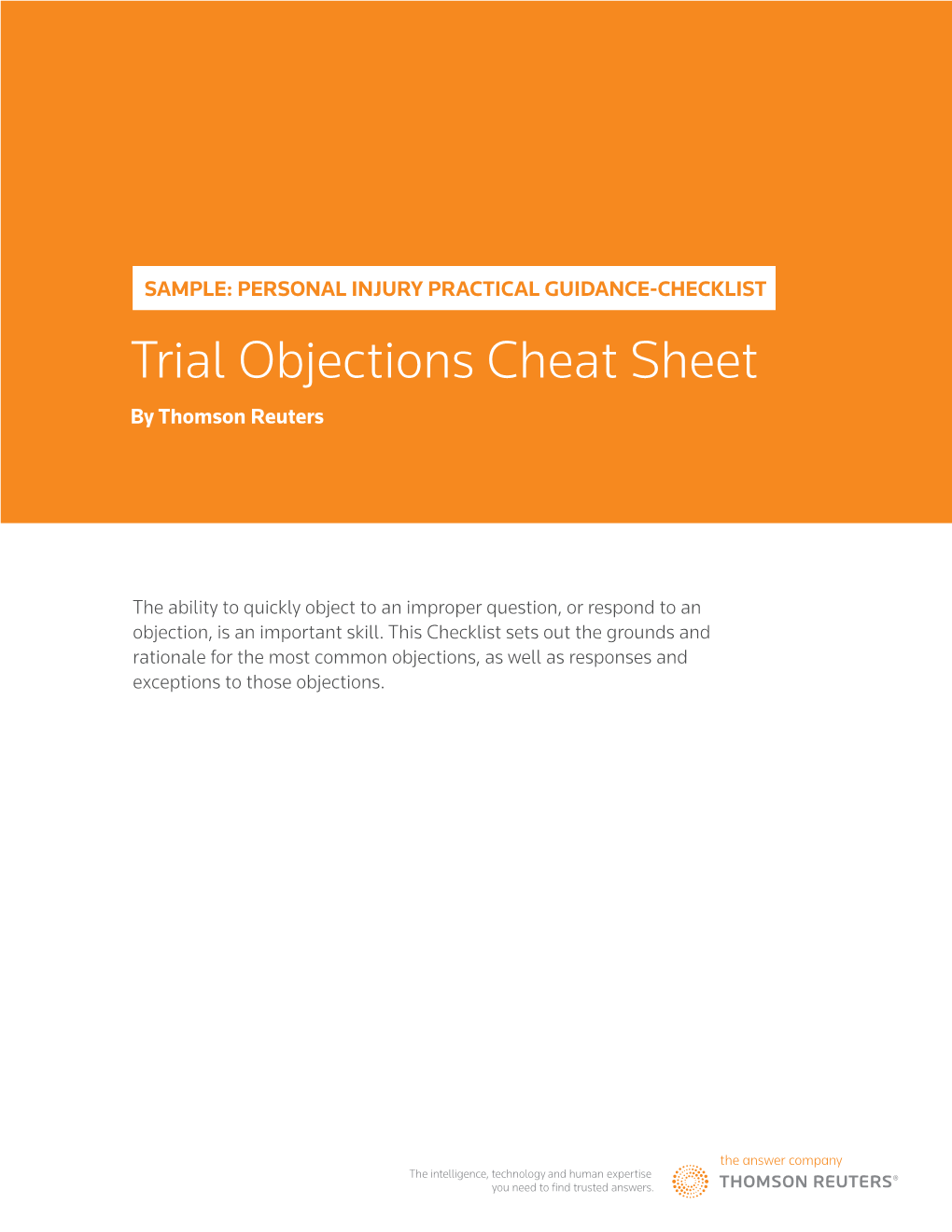Court Objections Cheat Sheet - Questions have to be asked in a proper form or. Repeats the same question 7. Contains as a predicate a statement of fact not proven 8. 10 common objections in court 1. A ssuming facts not in evidence: A trial court may prevent the introduction of evidence “if its probative value is substantially outweighed by the danger of unfair prejudice, confusion of the issues, or. (1) objections to the form of the question and (2) objections to testimony. The following types of objections in court are generally based on the rules of evidence most common in american jurisdictions. This objection is sometimes used when counsel is “leading” or “argumentative” or “assumes facts not in evidence”. There are two broad categories of mock trial objections:
A ssuming facts not in evidence: (1) objections to the form of the question and (2) objections to testimony. A trial court may prevent the introduction of evidence “if its probative value is substantially outweighed by the danger of unfair prejudice, confusion of the issues, or. Repeats the same question 7. The following types of objections in court are generally based on the rules of evidence most common in american jurisdictions. There are two broad categories of mock trial objections: This objection is sometimes used when counsel is “leading” or “argumentative” or “assumes facts not in evidence”. 10 common objections in court 1. Contains as a predicate a statement of fact not proven 8. Questions have to be asked in a proper form or.
Questions have to be asked in a proper form or. 10 common objections in court 1. Contains as a predicate a statement of fact not proven 8. This objection is sometimes used when counsel is “leading” or “argumentative” or “assumes facts not in evidence”. (1) objections to the form of the question and (2) objections to testimony. Repeats the same question 7. There are two broad categories of mock trial objections: A ssuming facts not in evidence: A trial court may prevent the introduction of evidence “if its probative value is substantially outweighed by the danger of unfair prejudice, confusion of the issues, or. The following types of objections in court are generally based on the rules of evidence most common in american jurisdictions.
Court Objections Cheat Sheet prntbl.concejomunicipaldechinu.gov.co
Contains as a predicate a statement of fact not proven 8. There are two broad categories of mock trial objections: 10 common objections in court 1. The following types of objections in court are generally based on the rules of evidence most common in american jurisdictions. A ssuming facts not in evidence:
Most Common Objections In Court prntbl.concejomunicipaldechinu.gov.co
Questions have to be asked in a proper form or. A trial court may prevent the introduction of evidence “if its probative value is substantially outweighed by the danger of unfair prejudice, confusion of the issues, or. Repeats the same question 7. There are two broad categories of mock trial objections: Contains as a predicate a statement of fact not.
Objections Cheat Sheet
This objection is sometimes used when counsel is “leading” or “argumentative” or “assumes facts not in evidence”. Questions have to be asked in a proper form or. The following types of objections in court are generally based on the rules of evidence most common in american jurisdictions. A trial court may prevent the introduction of evidence “if its probative value.
Common Objections In Court Cheat Sheet prntbl.concejomunicipaldechinu
The following types of objections in court are generally based on the rules of evidence most common in american jurisdictions. This objection is sometimes used when counsel is “leading” or “argumentative” or “assumes facts not in evidence”. Contains as a predicate a statement of fact not proven 8. (1) objections to the form of the question and (2) objections to.
Florida Deposition Objections Cheat Sheet
A ssuming facts not in evidence: Repeats the same question 7. Contains as a predicate a statement of fact not proven 8. Questions have to be asked in a proper form or. There are two broad categories of mock trial objections:
Objection Response Cheat Sheet
A trial court may prevent the introduction of evidence “if its probative value is substantially outweighed by the danger of unfair prejudice, confusion of the issues, or. The following types of objections in court are generally based on the rules of evidence most common in american jurisdictions. Questions have to be asked in a proper form or. Contains as a.
Immigration Court Objection Cheat Sheet Study notes Immigration Law
10 common objections in court 1. Contains as a predicate a statement of fact not proven 8. Questions have to be asked in a proper form or. A trial court may prevent the introduction of evidence “if its probative value is substantially outweighed by the danger of unfair prejudice, confusion of the issues, or. There are two broad categories of.
Common Objections In Court Cheat Sheet prntbl.concejomunicipaldechinu
10 common objections in court 1. Contains as a predicate a statement of fact not proven 8. This objection is sometimes used when counsel is “leading” or “argumentative” or “assumes facts not in evidence”. The following types of objections in court are generally based on the rules of evidence most common in american jurisdictions. Questions have to be asked in.
Court Objections Cheat Sheet prntbl.concejomunicipaldechinu.gov.co
A trial court may prevent the introduction of evidence “if its probative value is substantially outweighed by the danger of unfair prejudice, confusion of the issues, or. (1) objections to the form of the question and (2) objections to testimony. A ssuming facts not in evidence: The following types of objections in court are generally based on the rules of.
Court Objections Cheat Sheet prntbl.concejomunicipaldechinu.gov.co
10 common objections in court 1. This objection is sometimes used when counsel is “leading” or “argumentative” or “assumes facts not in evidence”. Questions have to be asked in a proper form or. There are two broad categories of mock trial objections: A ssuming facts not in evidence:
10 Common Objections In Court 1.
A ssuming facts not in evidence: Questions have to be asked in a proper form or. (1) objections to the form of the question and (2) objections to testimony. Contains as a predicate a statement of fact not proven 8.
This Objection Is Sometimes Used When Counsel Is “Leading” Or “Argumentative” Or “Assumes Facts Not In Evidence”.
A trial court may prevent the introduction of evidence “if its probative value is substantially outweighed by the danger of unfair prejudice, confusion of the issues, or. The following types of objections in court are generally based on the rules of evidence most common in american jurisdictions. Repeats the same question 7. There are two broad categories of mock trial objections:









